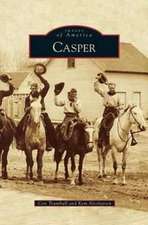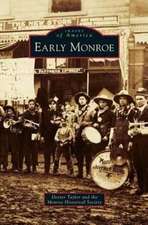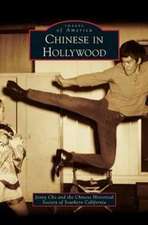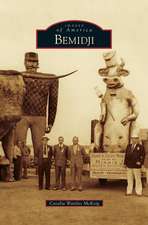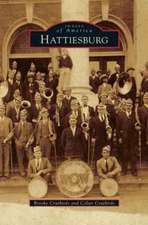Brazil: Latin America in Focus
Editat de Antonio Luciano de Andrade Tosta, Eduardo F. Coutinhoen Limba Engleză Hardback – 13 dec 2015 – vârsta până la 17 ani
Preț: 382.36 lei
Preț vechi: 808.66 lei
-53% Nou
Puncte Express: 574
Preț estimativ în valută:
73.17€ • 75.96$ • 61.01£
73.17€ • 75.96$ • 61.01£
Carte tipărită la comandă
Livrare economică 22 martie-05 aprilie
Preluare comenzi: 021 569.72.76
Specificații
ISBN-13: 9781610692571
ISBN-10: 1610692578
Pagini: 440
Ilustrații: 30 bw illus
Dimensiuni: 178 x 254 x 30 mm
Greutate: 1.16 kg
Editura: Bloomsbury Publishing
Colecția ABC-CLIO
Seria Latin America in Focus
Locul publicării:New York, United States
ISBN-10: 1610692578
Pagini: 440
Ilustrații: 30 bw illus
Dimensiuni: 178 x 254 x 30 mm
Greutate: 1.16 kg
Editura: Bloomsbury Publishing
Colecția ABC-CLIO
Seria Latin America in Focus
Locul publicării:New York, United States
Caracteristici
Differs from other works in that it combines coverage of the geography, history, politics, and economy of Brazil with entries on society, culture, and contemporary issues
Notă biografică
Antonio Luciano de Andrade Tosta, PhD, is assistant professor of Brazilian literature and culture at the University of Kansas.Eduardo F. Coutinho, PhD, is professor of comparative literature at the Federal University of Rio de Janeiro, Brazil.
Cuprins
Preface,Introduction,1 Geography,Overview,The Northeast,Maranhão,Piauí,Ceará,Rio Grande do Norte,Paraíba,Pernambuco,Alagoas,Sergipe,Bahia,The North Region,Pará,Amazonas,Amapá,Roraima,Acre,Rondônia,Tocantins,The South Region,Paraná,Santa Catarina,Rio Grande do Sul,The Midwest Region,Mato Grosso,Mato Grosso do Sul,Goiás,Distrito Federal,The Southeast Region,Minas Gerais,Espírito Santo,Rio de Janeiro,São Paulo,2 History,Timeline of Events,Colonization and Early History,The Mature Colony,The Brazilian Empire (1822-1889),The First Republic (1889-1930),The Vargas Era (1930-1945) and the Second Republic,Military Dictatorship (1964-1985),Democratic Brazil (1985-Present),3 Government and Politics,Introduction: Consolidating a Young and Vibrant Democracy,History: From the Empire to the New Republic,The Empire,The Proclamation of the Republic,Getúlio Vargas and His Legacy,National Parties and Competitive Elections,Vargas Returns to Power as an Elected President,Developmentalism and the Creation of Brasília,The Political Crisis of the 1960s,Brazil's Military Dictatorship (1964-1985),Democratization and a New Constitution,Government Today,A Multiparty Presidential Democracy in a Federative System,The Electoral System,Government Levels: The Federal Government, States, and Municipalities,Main Parties,Corruption,Foreign Relations,Conclusion,4 Economy,Introduction,Colonization: An Export-Led Economy,Industrialization,Democratization,Washington Consensus,Globalization,Development,Conclusion,5 Society,Religion and Thought,Religious Life, Moral Values, and Belief Systems in Brazil: An Overview,Native Brazilian Tribes and Nations,Catholicism,Protestantism,The Irmandades (Lay Brotherhoods),Religious Syncretism,Judaism,Islam,The Religious Scenario in Brazil Today,Social Classes and Ethnicity,The Intersection of Class and Ethnicity in Contemporary Brazil,Colonization,The Post-Independence Period,The 1930s-1960s,Brazil after Re-Democratization,Gender, Marriage, and Sexuality,The Patriarchal Family,The 19th Century and the Sentimentalizing of the Family,Post-World War II Women: The Full-Time Mother,Divided and Multiplied: Nowadays Wonder-Women,Women Today,Education,Introduction,Organization of Brazilian Education: Structure and Functioning,Childhood Education,Elementary Education,Secondary Education or High School,University Education,Education Programs,Educational Policies in Brazil,Important Policies,Basic Education-Specific Programs Supported by the Ministry of Education,National Education Plan (PNE),Democratic School Management in Brazilian Education,Principles of Participative School Management and Organization,Basic Education Financing: FNDE and FUNDEB,National Educational Development Fund (FNDE),Basic Education Development Fund (FUNDEB),Assessment of Basic Education According to MEC,Higher Education Expansion and Evaluation,REUNI,SINAES-Higher Education National Evaluation System,6 Culture,Language,Brazil: A Multilingual Country,Indigenous Languages,Immigrant Languages,History of Brazilian Portuguese,Portuguese around the World,The Different Portuguese Languages,Brazilian Portuguese Diversity,The Role of Brazil in Promoting Portuguese,Teaching of Portuguese Language as a Nonnative Language,Foreign-Language Education in Brazil,Portuguese on the Internet and Social Media,English and Brazilian Portuguese: Cognates and False Cognates,Family and Etiquette,Introduction,The First Brazilians,The Formation of the Brazilian Family,Taboo Matters,Extending the Family, Changing Roles,The Single-Parent Families,The Safe Port,Open Doors, Plentiful Tables,Solidarity within the Family,Families Getting Old,Family and Faith,The Fantasy of the Racial Democracy,Conclusion,Literature and Drama,First Manifestations,The Baroque and Arcadian Periods,Romanticism,The Realist Era,Machado de Assis,The Transition Phase: Symbolism and Impressionism,The Modernist Movement,João Guimarães Rosa,Clarice Lispector,The Modernist Legacy and Postmodernism,The Brazilian Drama,Art,Indigenous Arts of the Brazilian Region,Dutch Artistic Influence in Colonial Brazil,Baroque and Rococo: The 17th and 18th Centuries in Brazil,Nineteenth-Century Brazil: The French Mission and the Roots of Modernity,The Rise of the Modern: The 20th and 21st Centuries in Brazil,Architecture,Colonial Brazil,Civil Architecture,Religious Architecture,Military Architecture,Imperial Brazil,Neoclassical,The Republic of Brazil,Eclecticism,Art Nouveau,Art Deco,Modernism,Postmodernism,Contemporaneous,Music,Introduction,History and Geography: Some Background,Brazil-United States?,The Myth of the Three Races,Music Comes on the Scene,Sources and Technologies,Taking Brazilian Music Seriously,Concepts and Problems,Orchestras, Bands, and Ensembles,Entering the Ring: Batuques, Jongos, Sambas, and Umbigadas,. Still in the Ring: Afro-Brazilian Religions,Leaving the Ring: Capoeira, Maracatu, and the Boi,Music and Poetry,Discovering Indigenous Musics,The Arrival of Technology: Radio Programs, Cinema, and "Jazes,"The Strength of the Urban Music Scene: MPB, Rock, and Reggae,The Romantic Audience: Sertanejo, Vanerão, and Arrocha,Youth Audiences: Funk, Rap, Pagode, and Tecnobrega,Conclusion,Food,Brazilian Cuisine(s) and Its Origins,Brazilian Staple Food and Everyday Eating Habits,What's in the Brazilian Plate?,Rice and Beans,Meat, Poultry, Pork, Fish, and Shellfish,Fruits and Vegetables,Brazilian Regional Cuisine,Sharing a Meal,Leisure and Sports,Introduction,Indigenous Sporting Traditions,Martial Arts,Capoeira,Brazilian Jiu-Jitsu,Modern Sports,European Influence,Soccer,Internationally Competitive Sports,Women and Sports,Spotlight on Brazilian Athletes,Recreational Sports/Games,Leisure,Cinema,Early Films,Cinema Novo,Cinema in the Late 20th Century,Post-Retomada Films,7 Contemporary Issues,Introduction,Abortion and Family Planning,Affirmative Action,Catholic Church,Drugs,Cannabis or Marijuana,Cocaine,Opiates,Hosting Big Events,Latin America,Nationalism in Brazil,Racism,Television as a Civil Society Group in Brazil,Brazil-Developing or Forever the "Country of the Future"?,Glossary,Facts and Figures,Major Brazilian Holidays and Festivals,Country-Related Organizations,Selected Bibliography,About the Editors and Contributors,Index,
Recenzii
Overall, a useful and handy guide. Summing Up: Recommended. Lower-division undergraduates; general readers.
Top Community College Resource, September 2016
This work provides insightful background on a complex, emerging nation.
Top Community College Resource, September 2016
This work provides insightful background on a complex, emerging nation.





